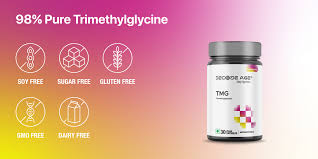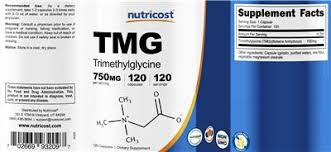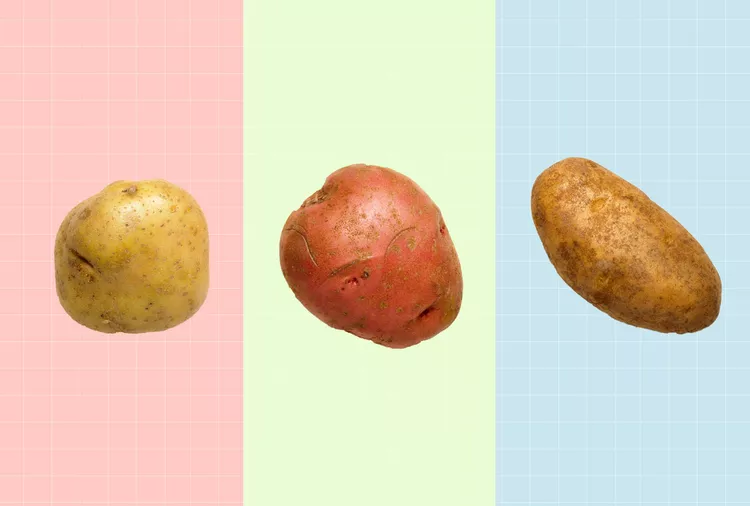TMG Supplement’s (Trimethylglycine TMG), also known as betaine, is a natural compound that supports heart health, enhances athletic performance, and helps regulate insulin levels. Safe TMG intake can be up to 15 grams daily, though higher doses may cause side effects like diarrhea and nausea. TMG is both an anti-inflammatory and antioxidant compound that your body produces naturally and can be found in foods like beets, or taken as a supplement.
Structurally, TMG is derived from glycine with three methyl groups attached, playing a vital role in methylation—a process essential for DNA production and cellular repair. While TMG can offer several health benefits, high doses may increase the risk of side effects.
In this guide, we’ll explore the advantages of TMG, recommended dosages, potential side effects, and how to boost TMG intake naturally through food sources.
Potential benefits of TMG Supplement
TMG supplements are linked to various potential health benefits that support overall wellness. From promoting heart health to assisting in metabolic processes, TMG has gained attention as a supplement with promising effects.
May reduce homocysteine levels to promote heart health.
Research suggests that TMG may help reduce homocysteine levels by converting this amino acid into methionine, which could support heart health since elevated homocysteine is associated with an increased risk of cardiovascular issues. A 2021 review noted that taking up to 4 grams of TMG daily effectively lowered homocysteine levels without negatively affecting other heart-related markers, such as blood pressure or triglycerides. However, other studies have observed that TMG might cause a slight increase in total and LDL (“bad”) cholesterol, both of which are heart disease risk factors. More comprehensive studies are needed to fully understand the effects of TMG on heart health.
Could improve athletic performance
Many athletes incorporate TMG supplements with hopes of enhancing their exercise performance. For example, a 2021 study on 29 soccer players showed that taking 2 grams of TMG daily for 14 weeks led to improvements:
- Muscular strength
- Running speed
- The ability to sustain sprint repetitions.
Although the precise mechanisms are still under investigation, researchers from a 2014 review suggest that TMG may help reduce fatigue, support protein production, and promote the synthesis of creatine, a key compound for muscle energy.
Despite these promising findings, research on TMG’s effectiveness for athletic performance remains inconsistent. A 2017 review examining seven studies found that only two showed positive effects of TMG supplementation on muscle strength and power, while others, like a 2020 study focused on cross-fit training, found no significant improvements. Given the mixed results, more extensive research is essential before TMG can be confidently recommended as a performance-enhancing supplement for athletes.

May prevent insulin resistance
Research suggests that TMG supplements could play a role in improving insulin resistance, a condition that impairs the body’s ability to use insulin effectively for managing blood sugar levels. In a 2017 study involving nearly 2,400 participants, higher intake levels of choline and betaine—of which TMG is a form—were linked to decreased insulin resistance. Furthermore, a 2018 animal study discovered that TMG supplementation in mice fed a high-fat diet improved fat metabolism and decreased insulin resistance.
While these findings are promising, further studies are needed to confirm and better understand the impact of TMG on insulin sensitivity in humans.
Could improve depression
Research indicates that TMG supplements might enhance the effectiveness of specific antidepressant medications. Notably, TMG has been shown to boost the impact of S-adenosyl-methionine (SAMe), a compound used to manage mild to moderate depression. A 2015 study involving 64 participants with depression found that those taking both SAMe and TMG over 12 months experienced greater symptom improvement compared to those taking SAMe alone.
Additionally, TMG supplements may help alleviate symptoms of depression and anxiety. Since these mental health conditions are often associated with elevated homocysteine levels, TMG’s ability to lower homocysteine could be beneficial in managing these symptoms. However, more research is needed to understand TMG’s full impact on mood and mental health.
Potential side effects
TMG supplements are generally well-tolerated, but some users may experience mild digestive side effects. These commonly reported digestive issues include:
- diarrhea
- indigestion
- bloating
- cramps
- nausea
- vomiting
Higher doses of TMG supplements are more likely to cause side effects, especially digestive discomfort. In rare instances, TMG can elevate methionine levels in the blood, potentially leading to fluid accumulation around the brain. If you experience any adverse reactions, it’s best to stop using the supplement and consult a healthcare professional.
TMG supplements are generally not advised for children, pregnant, or nursing individuals, as research on the long-term safety and effects for these groups remains limited. Always prioritize safety and consult a doctor before adding new supplements to your routine.
Dosage
There is no established dosage guideline for TMG supplements; however, most products offer doses ranging from 750 to 3,000 milligrams (mg) per serving. Studies suggest TMG is generally safe for consumption in amounts up to 20 grams daily. Research on TMG’s potential benefits has typically used doses of 500 to 9,000 mg per day, usually divided across smaller portions to ensure effectiveness and minimize side effects.
If you have any health conditions or are on other medications, consult a healthcare provider before starting TMG supplements, and always follow recommended usage guidelines.

Other ways to increase your intake
You can naturally boost your TMG intake by incorporating various foods into your diet, as it is present in several common items. According to a 2004 study, here are the TMG levels found in a 3.5-ounce (100-gram) serving of different foods:
- Wheat bran: 1,339 mg
- Wheat germ: 1,241 mg
- Spinach: 600 to 645 mg
- Quinoa: 390 mg
- Beets: 114 to 297 mg
- Shrimp: 219 mg
- Wheat bread: 201 mg
The TMG content in foods can be influenced by various factors, including cooking methods. Notably, certain techniques, especially boiling, can lead to a significant reduction in the levels of TMG present in the food.
Key Takeaways
TMG, or trimethylglycine, is a naturally occurring compound synthesized by your body and available in both supplements and various foods. While additional research is essential, preliminary studies in both humans and animals indicate that TMG may offer anti-inflammatory and antioxidant benefits, potentially leading to numerous health advantages.
Before starting TMG supplements, especially if you have medical conditions such as heart disease, depression, or insulin resistance, it’s crucial to consult a healthcare professional. Continued research will help clarify the full range of TMG’s benefits and applications in health and wellness.

What are TMG supplements used for?
TMG supplements are believed to enhance heart health, boost athletic performance, regulate insulin levels, and improve the efficacy of certain antidepressants.
Is TMG anti-inflammatory?
Emerging research indicates that TMG may possess anti-inflammatory properties, contributing to overall health.
Does TMG affect sleep?
Some studies suggest a correlation between low levels of TMG and poor sleep quality. However, further research is necessary to understand the relationship between TMG supplementation and sleep patterns.
Should you take TMG in the morning or at night?
Current research does not specify a preferred time for taking TMG, but some findings suggest that splitting the dosage may provide benefits. Therefore, taking TMG both in the morning and evening could be advantageous.








